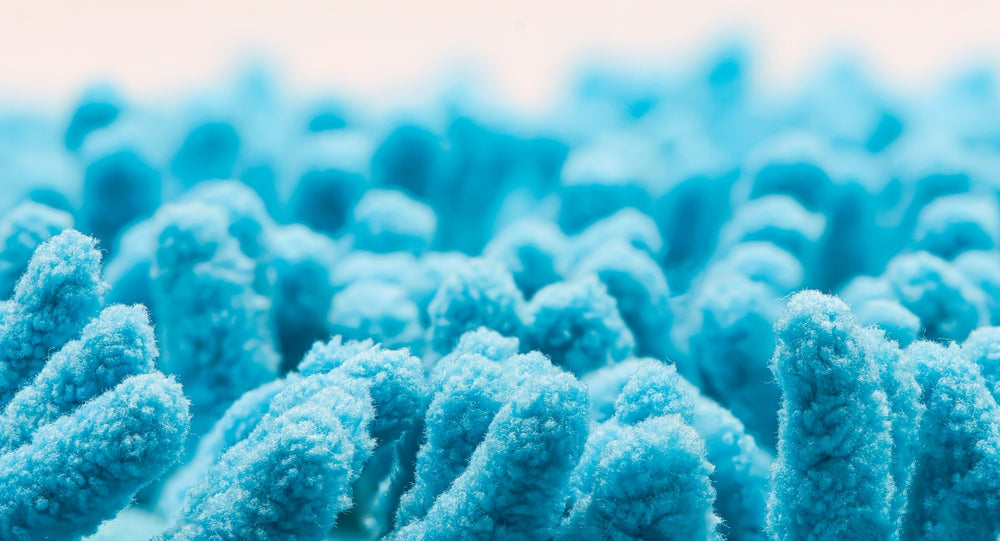
When I discovered my gut housed trillions of living organisms, everything changed.
My healing journey from Crohn’s disease wasn’t just about managing symptoms anymore. It was about nurturing my microscopic world that influenced every aspect of my health.
In this article, you'll learn what your gut microbiome is, how it affects your body, and practical ways to improve it naturally.
What Is Your Gut Microbiome?
Your gut microbiome is the collection of trillions of bacteria, fungi, and other microorganisms living in your digestive system. Think of it as an orchestra where lots of microscopic musicians work together to create harmony in your body.
These tiny performers live in your intestines. Each type of microbe plays its own unique instrument, from breaking down food to producing essential nutrients your body needs.
Your Microbiome By The Numbers
Your gut microbiome contains 100 trillion microorganisms weighing around 200g, about the same as a small avocado!
Scientists count 40 trillion bacterial cells compared to 30 trillion human cells, meaning you have more bacterial cells than human cells in your body.
Healthy adults typically house more than 1000 different species of bacteria in their gut alone.
How Your Gut Changes Over Time
Your microbiome begins developing from the moment you're born. It changes throughout your life based on what you eat, where you live, and how you care for your body.
Sometimes this delicate ecosystem falls out of balance and bad bacteria start outnumbering the good ones. The technical name for this is dysbiosis, and this can trigger digestive problems and impact your overall wellbeing.
6 Ways Your Microbiome Is Influencing Your Body
1) Mood and mental clarity: Most serotonin is produced in the gut, explaining why you truly do "feel it in your gut". This "happy hormone" production depends on having the right balance of gut bacteria, which is why digestive issues often coincide with mood problems.
2) Immune system strength: Up to 80% of immune cells are located in the gut, making it your first line of defense against illness. These immune cells rely on beneficial bacteria to distinguish between harmful threats and harmless substances, which explains why people with poor gut health get sick more often.
3) Weight management: Research shows obese individuals have higher F:B ratios (Firmicutes to Bacteroidetes), and this ratio decreases as people lose weight. This bacterial imbalance means some people's gut microbes are simply more efficient at harvesting calories from the same foods, making weight management more challenging.
4) Body inflammation levels: Different bacterial types influence your body's inflammatory response, with some promoting inflammation while others help regulate it. When harmful bacteria outnumber the beneficial ones, your body stays in a constant state of low-level inflammation that can lead to chronic health problems.
5) Nutrient production: Your microbiome produces essential vitamins B12, K, and short-chain fatty acids that your body can't make on its own. These bacterial factories work around the clock to manufacture nutrients your body needs, which means gut health problems can lead to deficiencies even when you eat well.
6) Brain function: Your microbiome constantly communicates with your brain through the gut-brain axis, influencing stress response and mental clarity. This constant chemical conversation between gut and brain means that supporting your microbiome can improve your mental clarity.
How To Improve Your Microbiome
Build Diversity Through Food Variety
Eating a variety of different foods creates diversity in your microbiome. The more varied your diet, the more diverse your gut bacteria become.
Focus especially on foods that support SCFA production, such as fruits, vegetables, beans, and whole grains. These short-chain fatty acids serve as fuel for your gut lining.
Within this variety, prebiotic plants deserve special attention. Think of them as fertiliser for your internal garden, helping good bacteria thrive.
Plant-Based Microbiome Support
Traditional herbal remedies offer another approach to supporting your gut ecosystem. These plants have been used for generations to promote digestive balance and comfort.
Marshmallow root has traditionally been used to support your gut lining. Fennel seeds have long been valued for soothing digestive discomfort. Ashwagandha has traditionally helped people manage stress-related changes to their microbiome.
Cosmic Hue combines seven traditionally used plants in one convenient daily tea, developed from my own experience and extensive research into natural gut support.
Lifestyle Habits for Microbiome Health
Several lifestyle factors influence your gut ecosystem. Regular exercise, your living environment, and how you manage stress all play important roles.
Small daily habits can create significant changes in your microbiome over time. Consistency matters more than perfection when nurturing your gut health.
Conclusion
Your microbiome is as unique as your fingerprint and is made up of trillions of microorganisms. Science now shows that your gut influences many process in your body such as immunity, mood and digestion.
Supporting this ecosystem starts with simple, consistent actions. Think eating diverse foods, getting enough sleep, or exercising regularly. Cosmic Hue can also complement your microbiome wellness as part of your daily routine.
Before you make any lifestyle changes to improve your microbiome, consider getting guidance from healthcare professionals who understand your individual needs.
Please note this information is for educational purposes only, not medical advice. Cosmic Hue is not intended to diagnose, treat, cure, or prevent any disease. Always consult your healthcare provider before making changes to your health routine.

